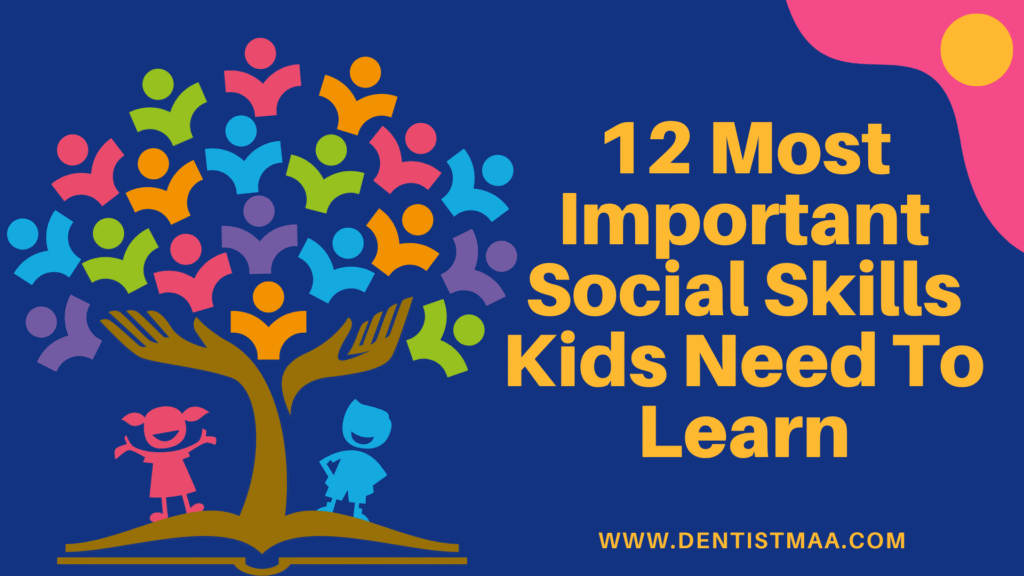What are Social Skills and why are they important?
Social Skills are the ability to communicate and behave effectively with other people or society. Learning social skills is crucial in life as it is a life skill.
Social skills allow a person to build relationships, communicate with colleagues, express themselves in a social environment, manage emotions, and much more. Social skills are one of the most important life skills. As we always want our kids to excel academically, excelling in social skills should be equally important.
A child or someone brilliant who doesn’t know how to behave in society, or doesn’t have the confidence to speak up in a group of people, might not excel. The knowledge or the skills need to be expressed.
For example, in a conference hall, a candidate has one of the most brilliant ideas on the topic being discussed but doesn’t know how to express himself or herself. This person will not get noticed by the boss, whereas a person with an idea not that brilliant but who knows how to present it might take the credit and even a promotion.
So, teaching social skills to kids is important and should start at an early age.
In this article
What are the most important social skills?
The 12 most important social skills to teach kids are:
1. Communication
Communication is the key to everything in human life and is one of the most important social skills. It involves both verbal as well as non-verbal ways of expressing ideas and thoughts. Good communication includes speaking clearly and loudly enough so that the other person can listen to you without much effort. People with good communication skills are known to be good leaders, as others listen and follow these people.
Asking questions is another part of communication that is again important. When you talk alone without involving anyone else, it becomes boring, and people tend to stay away from such people. Also, a question can always be a conversation starter.
Nonverbal communication, such as eye contact, body language, and listening ability, also plays a very important role. Facial expressions are a big way of showing your emotions.
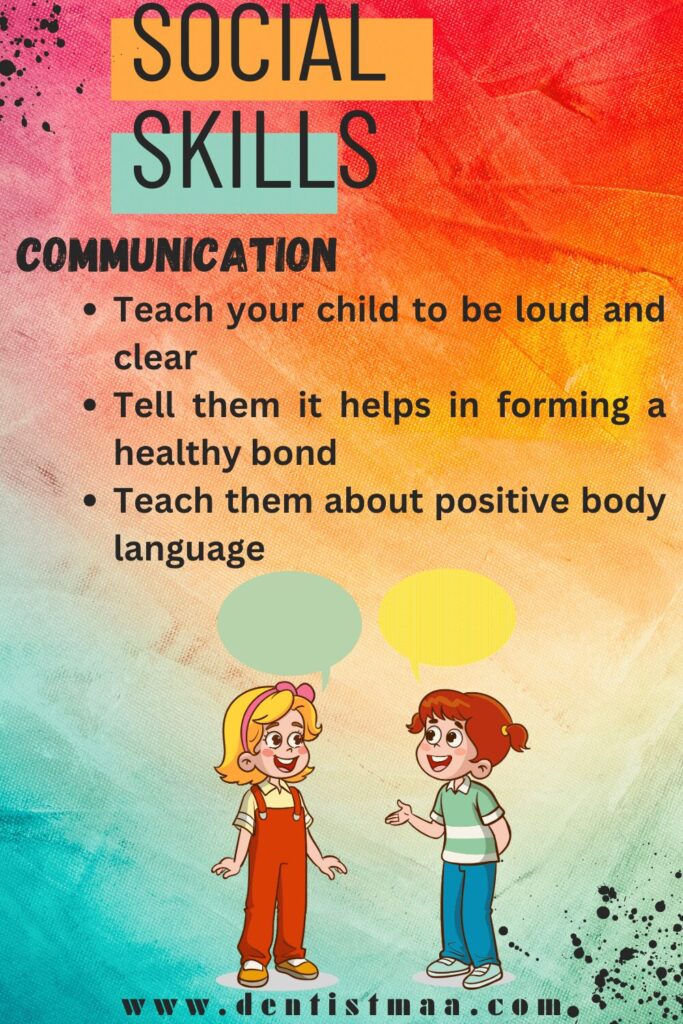
2. Listening
Communication doesn’t mean you are the only one talking. Listening is one of the essential social skills. You should not just listen to respond. It would help if you listened to understand the other person. It would help if you listened to make the other person feel heard and react so that he or she feels good after talking to you.
When you listen to a person with patience, you build a bond. It helps in forming a relationship to be cherished. The friendships where you listen last longer and stronger.
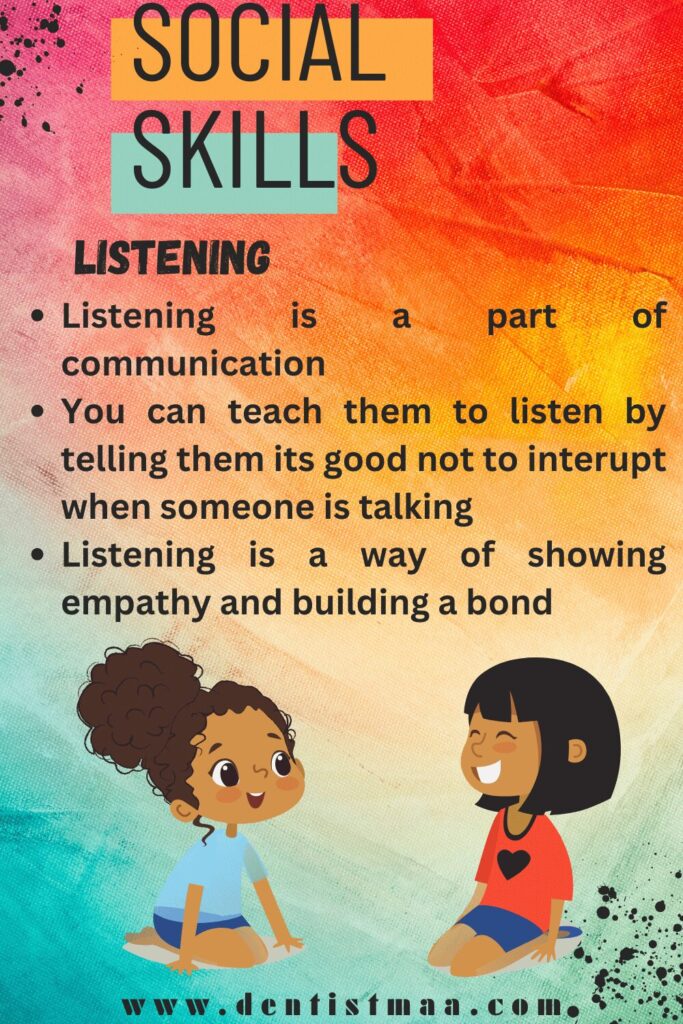
3. Sharing
Sharing is another important social skill that develops around the age of 3 years. When you start teaching the child how to share their things early, the child starts grasping it and understanding it, as the mind is still developing.
Sharing helps in learning other social skills such as communication, empathy, patience, friendship, and respect. When your child is 2 and above, slowly start asking your child to share her things with you or her sibling. Do not force the child; just very politely tell them that there is a possibility of sharing. The child will not want to do it in the beginning, but slowly will understand and start sharing.
I taught sharing to my daughter at an early age, and by the time she was 3, she was sharing her stuff without any hesitation. Never did I see a tantrum because she didn’t want to share something. She was always polite and would ask her friend to just give it back once the friend had finished playing. She was always happy to share her food, too. I was a proud mama.
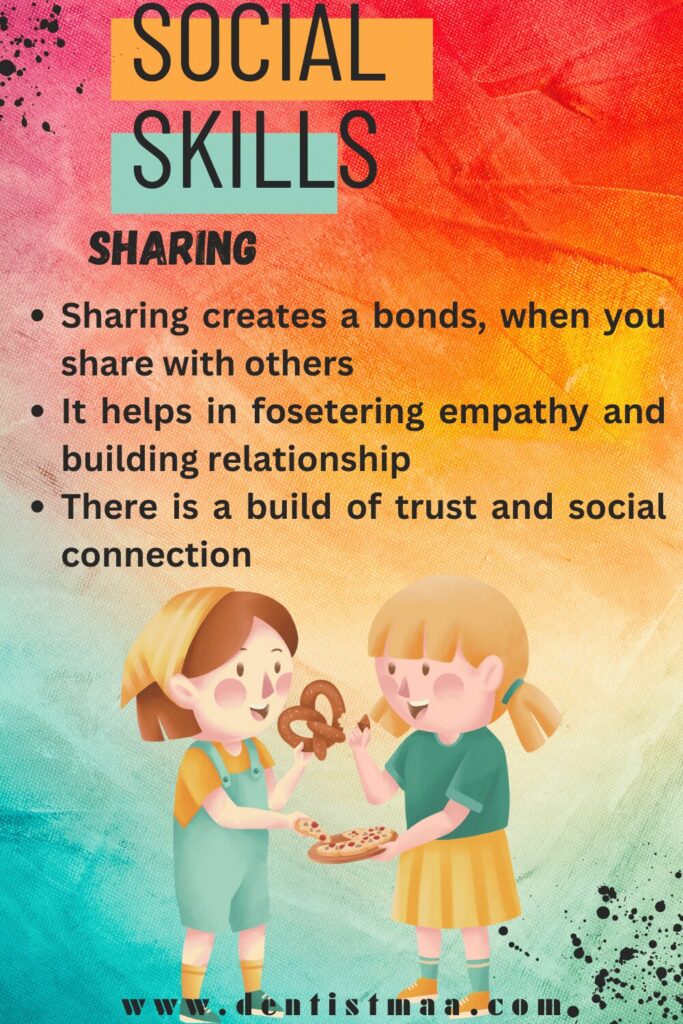
4. Empathy
Empathy is defined as “the ability to sense other people’s emotions, coupled with the ability to imagine what someone else might be thinking or feeling.“
Empathy is very important for a healthy relationship in life. Before we judge someone, we need to understand that person’s feelings. This understanding is known as empathy. And if we do not do that, we might judge the other person wrong and spoil our relationship. Also, if we are empathetic, we are kinder and generous towards others.
An empathetic child will not only care for his or her family and friends but also the animals and plants and everything around, which is an amazing thing to see. Empathy makes the world a better place to live in. So, children should be taught empathy from a young age. It becomes very difficult to change yourself once you are an adult. So, the earlier the better.
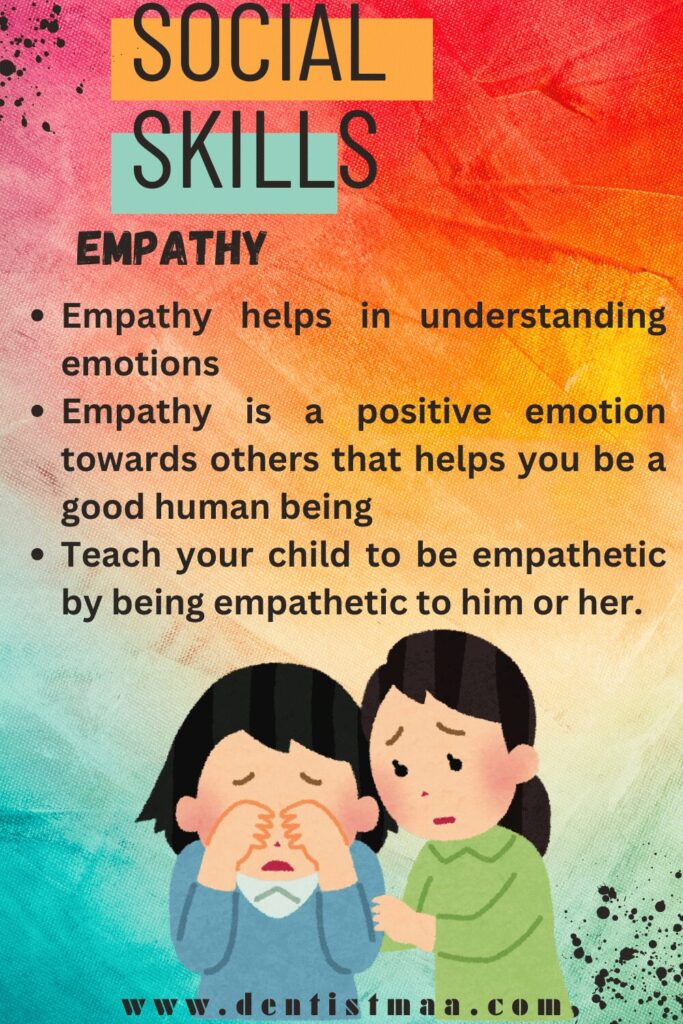
Related: 10 Terrific Ways to Teach Empathy to Kids
5. Manners and Etiquettes
Manners are again one of the most important social skills a child needs to learn. It takes a long time to understand and learn manners and etiquette, and so the earlier we start, the better it is.
Many parents think waiting until the child grows up is okay. But then, sometimes, it’s a little late. The key is to start early when the child starts understanding things. You don’t have to force the child to do something the way it has to be done. Just politely and lovingly start telling them the difference between right and wrong and how you should behave.
Start with the three magic words: thank you, please, and sorry. When your child comes and gives you something, just say thank you, slowl,y you will see your child saying thank you. Say sorry when you accidentally do something wrong. Say please when you are asking your child to do something. This is a way of modelling the behaviour so that the child sees and learns and eventually starts following it.
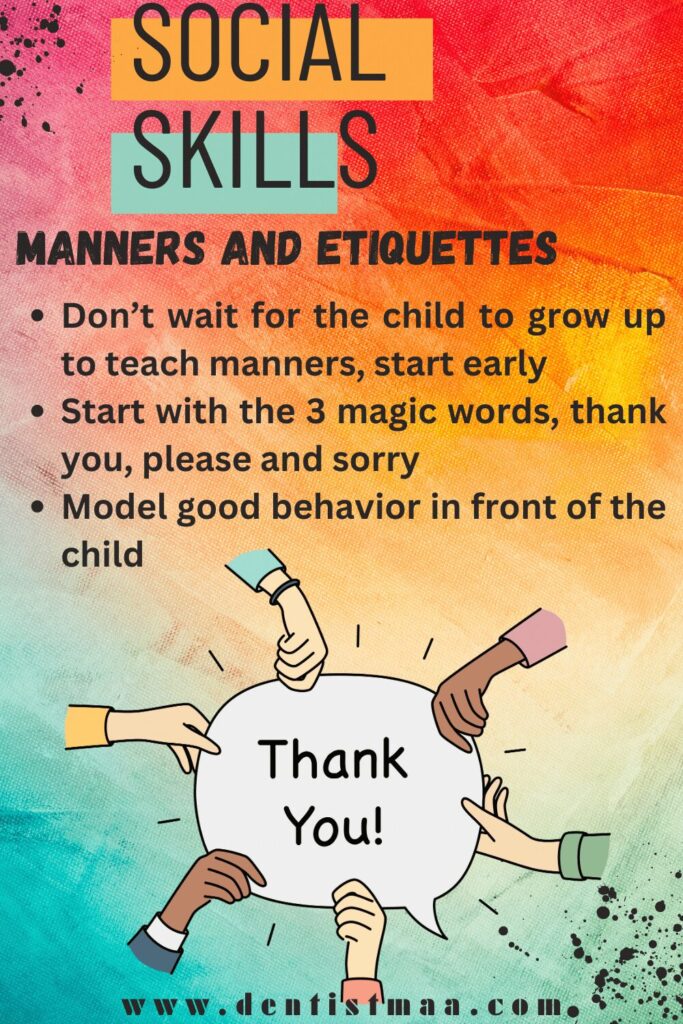
6. Respecting Others
Respecting others is something that can not be compromised. It is again one of the most important social skills. When you respect others, you get the respect back. You can model respect for your child by respecting the elderly as well as your child at home. Tell the child what respect is and why it is important.
It starts right from holding the child to talking and listening to her. The child learns when you show respect. Respect your child’s privacy, include them in making small age-appropriate decisions, and respect them in front of their friends. Understand that they are a person too. When they see you respecting them, they automatically will respect you and others.
Overall, you will be raising a good human being.
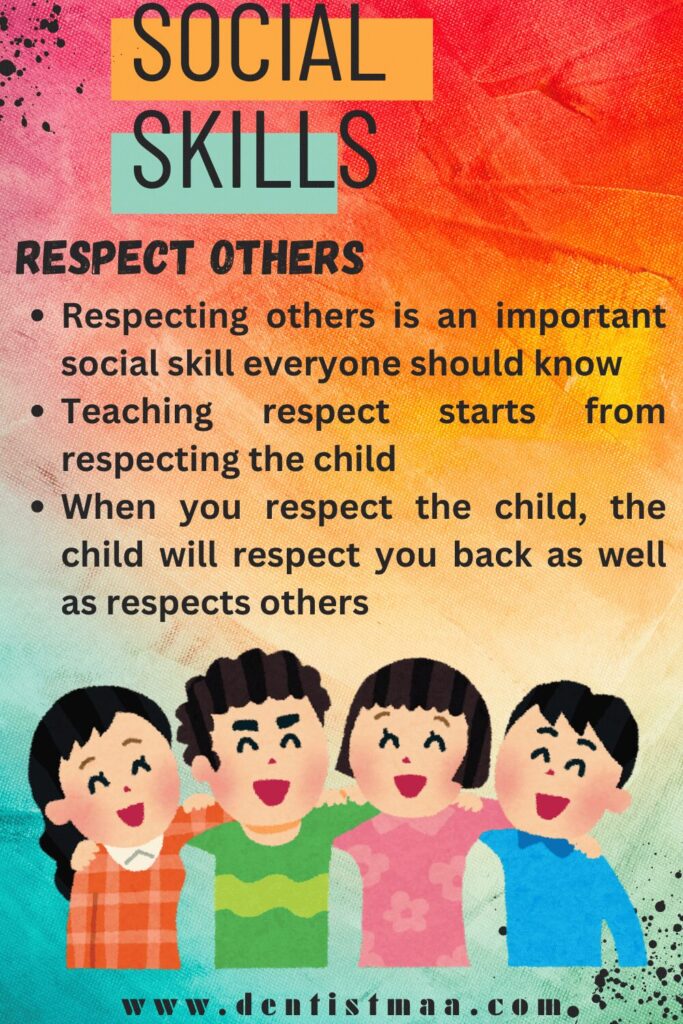
Read: 8 Amazing Ways to Show Your Child That You Respect Them
7. Positivity
Positivity and hard work are the keys to success. Teach your child to be positive always. Yes, there are moments in life when we all get disheartened. But it is not the end of the world. You need to get up, think positively, and keep going.
There is a documentary, “The Secret of Attraction”. It is one of my favourites, and all it talks about is being positive and manifesting things in life. Watch it and you will have a new perspective on life. Teach it to your children and help them manifest positive things in life.
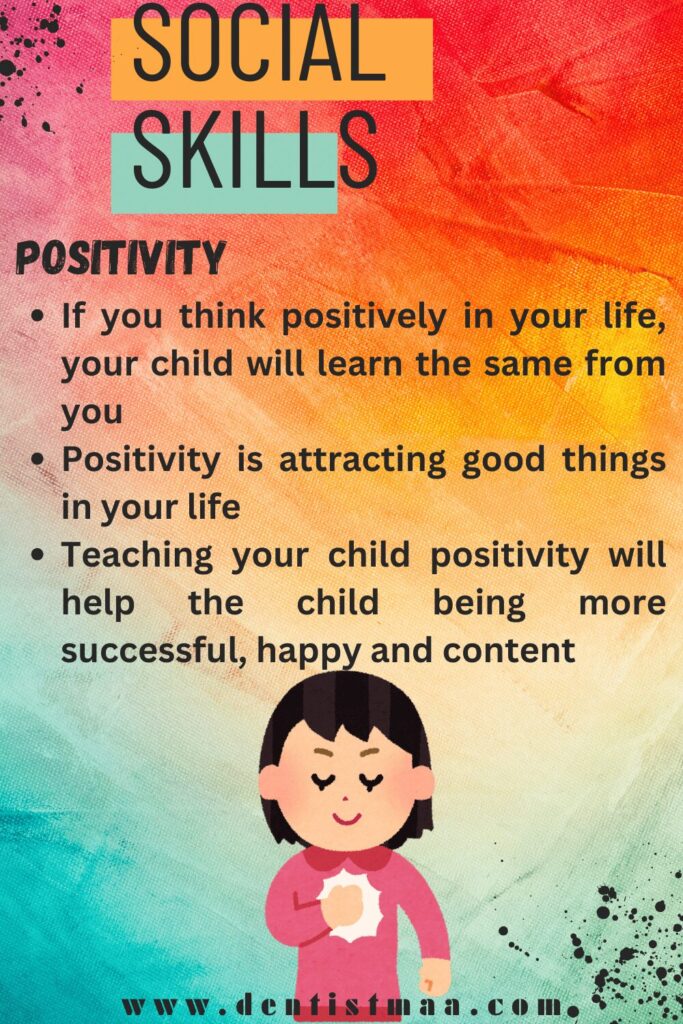
8. Making friends
Making friends is an essential life skill (social skills) that the child needs to learn for healthy social and emotional development. Friendship is more than just playing together. It is about forming mutual trust, respect, and empathy. To build a strong friendship, children should first learn how to initiate conversations, introduce themselves, and find common interests.
My daughter is not an extrovert but she is good at making friends. All I taught her was if you want to be friends with someone, go to him or her, and say “Hi! My name is xyz. What’s your name?” or “Would you like to play with me?” These questions are just conversation starters, and the children then proceed on their own. Understanding body language and how to respond, sharing with others, and showing respect and empathy all help in making the friendship strong. Setting healthy boundaries is also very important in friendship.
By mastering these skills, children can have strong, long-lasting friendships, which can be good for their overall development and well-being.
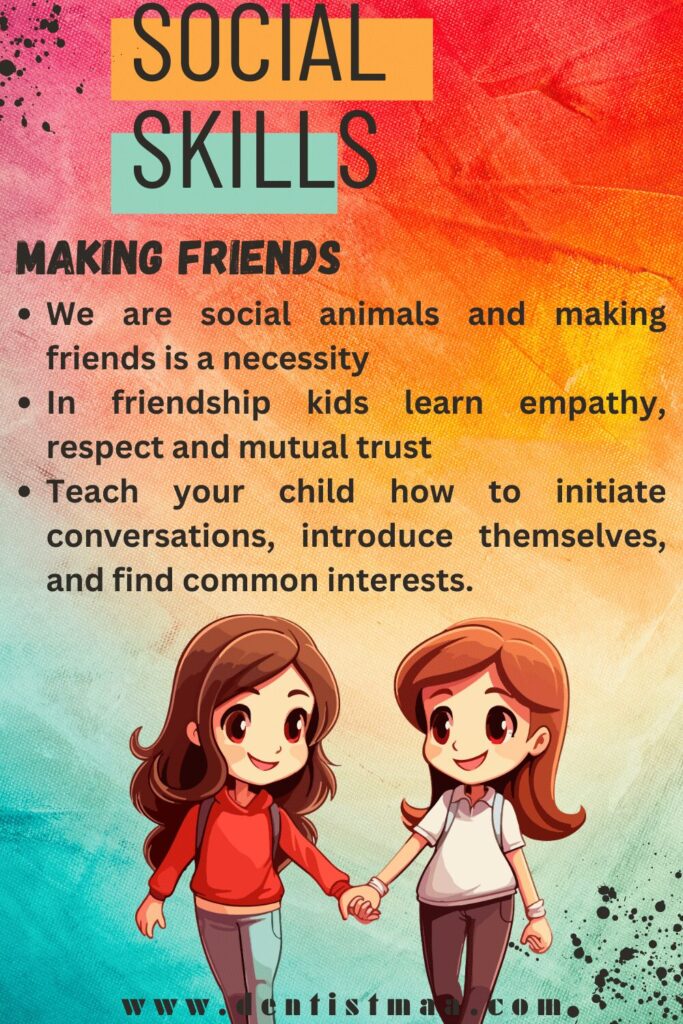
9. Following Directions
Following directions is one of the crucial social skills children need to learn, especially when the school years start, as it helps them succeed academically, socially, and also in everyday activities. All you need to teach them is to
First, listen carefully
Second, understand what is expected
Third, executing the task step by step
It is not easy for the child to do as directed one fine day, all of a sudden. The child will take time to learn and understand how it works, and that is why we need to start early. Learning to follow directions also helps in fostering a sense of patience, concentration, and attention to detail.
To start with, at a young age, we can just ask our kids to put their toys away and help them do it in the beginning, wash their hands before and after every meal, brush before going to bed, etc. As the child grows, we can give step-by-step instructions.
Moreover, following instructions teaches the kids to understand authority and follow rules. This helps them adapt to different environments, such as schools or sports. Encouraging children to ask questions when they’re unsure about directions builds confidence and helps them develop better communication and problem-solving skills.
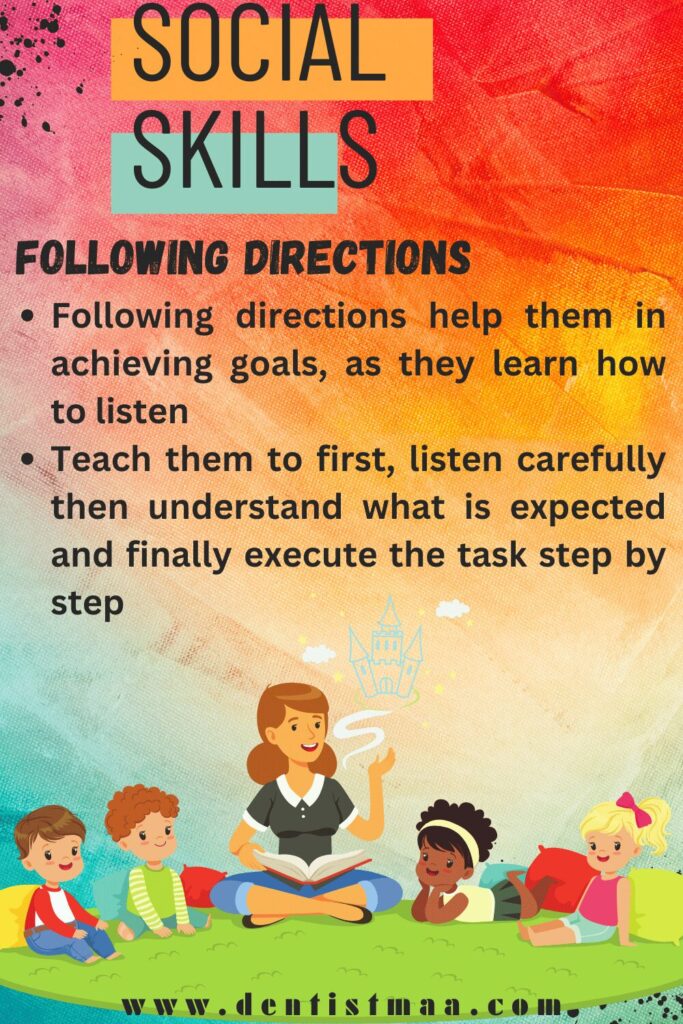
10. Team Work
Teamwork is one of the most essential social skills that helps children learn how to collaborate effectively with others and to achieve a common goal. Teamwork helps a child understand the concept of shared responsibility and that the efforts or participation of each group member is important.
Teamwork teaches kids to listen, understand others, share ideas, and communicate clearly. It teaches mutual respect. Working in a team also helps in developing problem-solving and conflict-resolution skills as the children work together and try to understand each other. It helps them to know what their as well as others’ strengths are. They divide the work accordingly to be good as a team.
Teamwork also helps in developing leadership qualities. It helps kids to learn to take turns. It helps in boosting their morale and self-esteem. When they work together they understand and learn that success comes when they work together and not when they work alone.
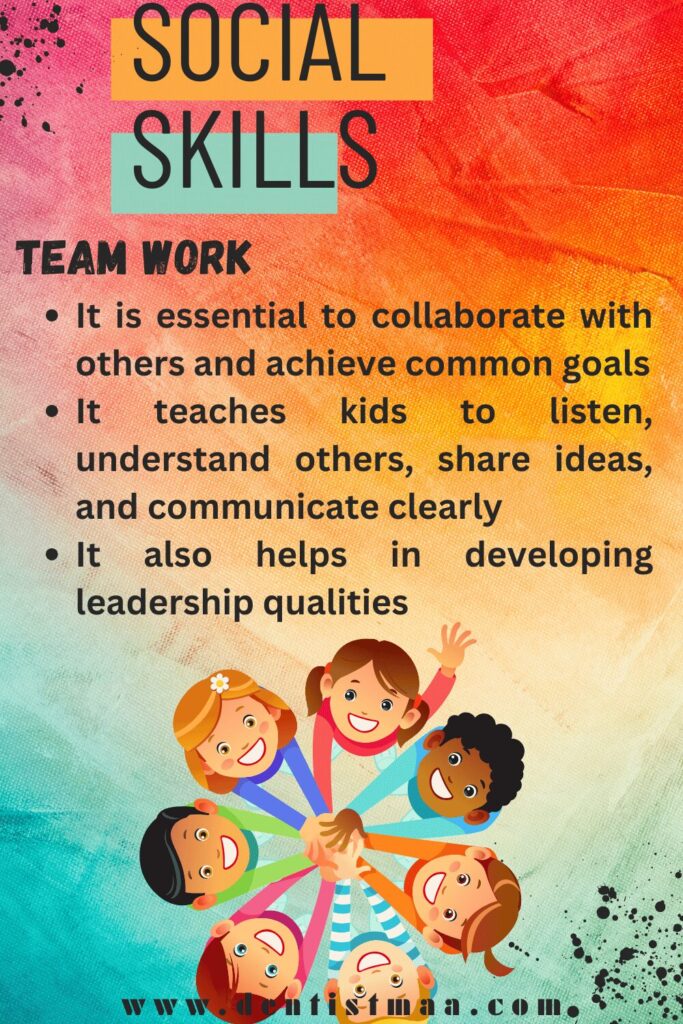
11. Patience
Patience is a vital social skill that kids need to learn. It helps in navigating challenges and overcoming frustrations. Patience helps in achieving long-term goals. When the child learns how to be patient, the child learns to wait for her turn, not to get overwhelmed when things are delayed, and to be calm when things don’t go as expected.
Patience also teaches kids that success takes time and effort, and you should not give up. You should keep trying till you succeed. Patience also helps in positive social interactions, and the child understands the other person’s pace and needs. Patience also teaches kids empathy as the child becomes a patient listener and helps in building strong relationships. Developing patience early on sets the foundation for greater resilience, self-control, and overall success in life.
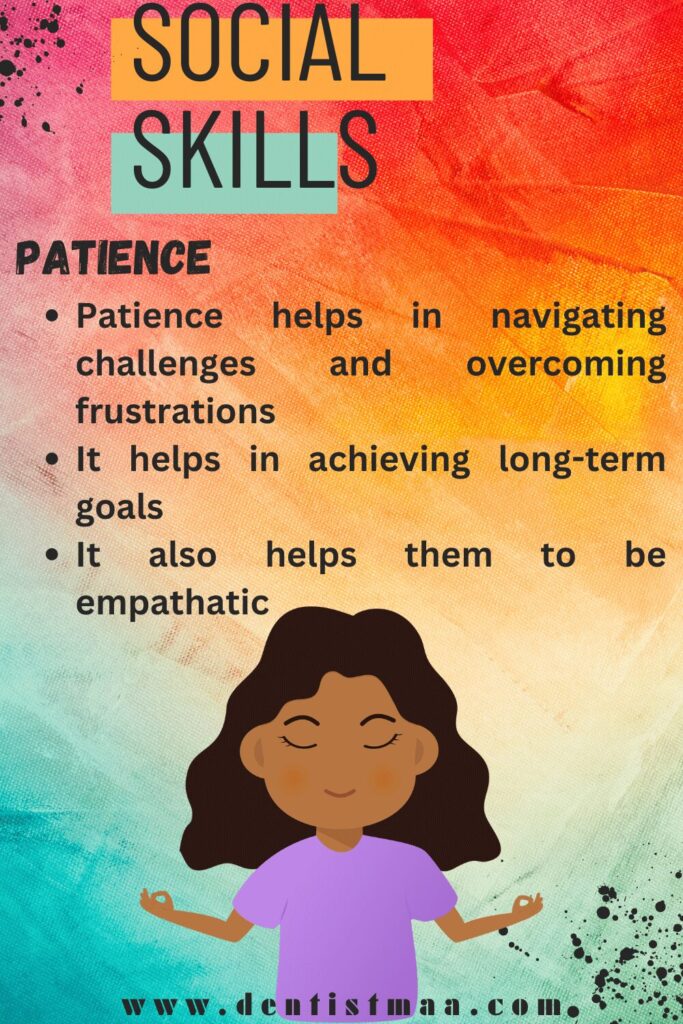
12. Co-operation
Co-operation is the key to so many other life skills like empathy, respect, listening, teamwork, and patience. It helps in building all of them. Teaching kids to cooperate is not very difficult and can be done routinely.
Ask your child to sit at a place or play independently for a few minutes when you finish your work or a chore. The child will slowly start understanding why she needs to cooperate. Sit with the child and explain why it is important for you to do a particular work.
You can involve the child in age-appropriate household chores. Give the child single-line instructions (suggestions), and if the child is following it, the child is cooperating with you. When kids play in teams, they learn to cooperate. Plan playdates for your child and help them learn.
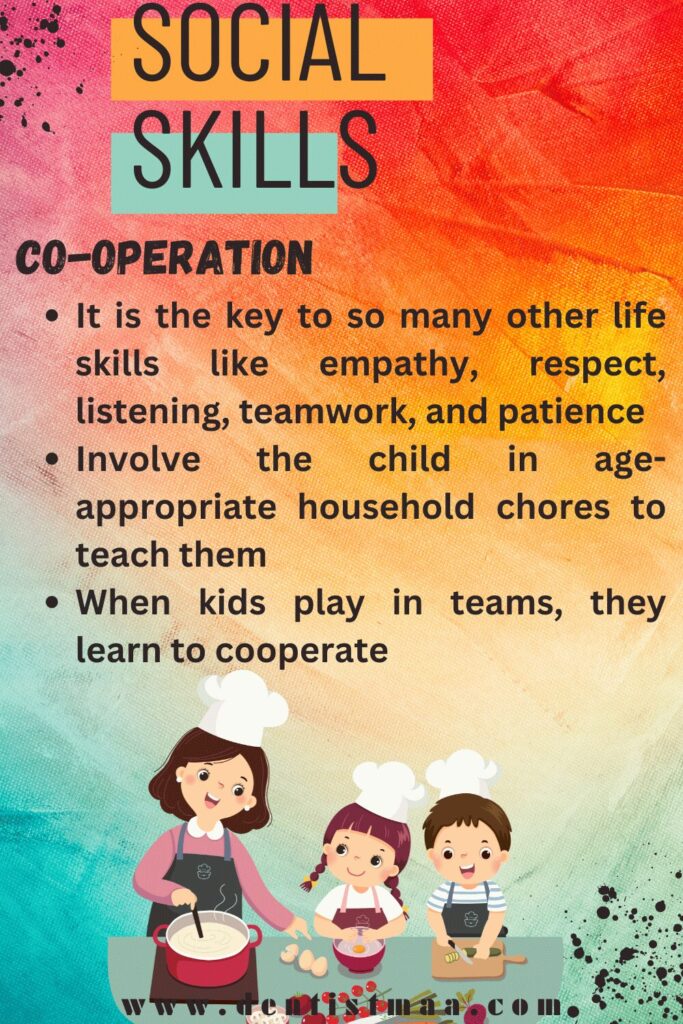
Teaching kids social skills is very important for them to lead a life full of self-esteem and satisfaction. When you teach your child these 12 social skills, the child is more prone to success and happiness in life. If you have more ideas or examples of social skills you teach your kids, do share them with us.
What Are the Benefits of Doing Chores for Kids? 10 Surprising Reasons Every Parent Should Know

